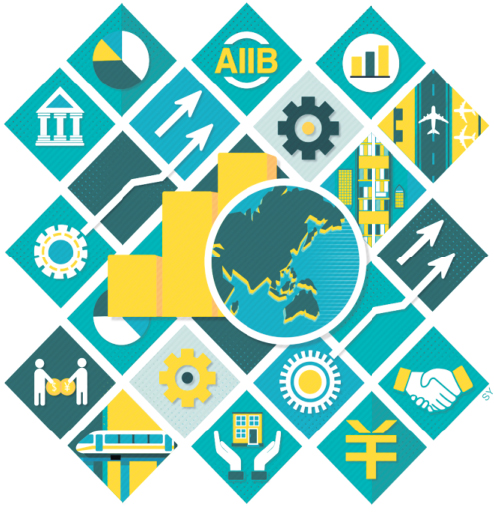Multilateralism for an inclusive world
In the post-war period, the multilateral system has delivered major economic and social progress. Globalization ushered in an unprecedented era of growth, lifting hundreds of millions of people out of poverty. Openness and partnership between countries played a critical part in this success. The United Nations, the World Trade Organization, and the Bretton Woods organizations have been the underpinnings of the multilateral economic system. They became the forums that shaped the "rules of the game" for a global system in which countries have thrived.
Today's world economy is more complex than ever and there are multiple global challenges, such as lackluster growth, climate change, pandemics and refugees. These are putting increasing demands on the multilateral system. Much as we need more international cooperation, multilateralism has come under stress. Protectionist rhetoric and actions are on the rise. Some blame the global financial crisis on excesses caused by globalization. And, although the gains from globalization have been huge, not everyone has benefited, and some are left behind. In response, some countries are turning away from the multilateral solutions of the past.
But there is no going back. Earlier this year at Davos, President Xi Jinping said that the global market system is the ocean we all swim in and cannot escape from. "Any attempt to… channel the waters in the ocean back into isolated lakes and creeks is simply not possible," he added. It is up to us to make sure that everybody can swim in that ocean. This means we need a stronger, more inclusive and more innovative multilateralism.
First, we need stronger and better multilateral institutions. Multilateral development banks must make the best use of each available dollar to demonstrate the value of the multilateral system. Over the past five years, the World Bank Group has gone through major organizational reforms to be better focused on today's problems, and has shaved some 10 percent off its operational costs to become a better bank. We have also adopted a new approach to development finance, to maximize participation of private finance in development, which allows us to focus public resources to public health, education, and other areas that cannot be efficiently financed by private money.
Second, for multilateralism to prevail, it must duly reflect its stakeholders in the best possible way. We need an economic governance system and institutions that more equitably reflect the weight of its members. Emerging and developing economies have more than 80 percent of the world's population, and represent more than 35 percent of the world economy-up from barely 15 only 25 years ago. And they contribute more than half of global growth. China, a developing economy, is now the largest economy in the world if measured in purchasing power parity, and second largest in current dollars.
We need inclusive intergovernmental bodies to discuss and address global challenges. The World Bank's shareholders have initiated a process to make shareholdings better reflect today's stakeholders in the global economy. The G20 has become a key forum for international cooperation and consensus building. It represents 85 percent of global GDP and 75 percent of trade. And under China's leadership, the Asian Infrastructure Investment Bank and the BRICS New Development Bank have become important new multilateral partners in addressing the huge infrastructure needs that are critical for ending poverty.
With the Belt and Road Initiative, China has introduced a new way of multilateral cooperation to the world. This promising initiative aims to deepen economic integration by improving trade, infrastructure, investment and people-to-people connectivity-not just across borders, but also on a trans-continental scale.
Third, we need new instruments to enable the international system to better manage major global threats and risks. The Green Climate Fund promises to provide the much-needed finance to support the historic Paris climate agreement, but the Clean Development Mechanism and multilateral development banks have already mobilized tens of billions of dollars to fight climate change. The World Bank, together with bilateral partners, has also created a pandemic facility, which can immediately disburse the resources needed to quell any outbreak in its early stages, before it becomes a regional or global problem. And we have set up a Global Crisis Facility, which addresses the refugee crisis that has swept the Middle East, and now threatens parts of Asia.
Multilateralism has been tested in the past, and will continue to be tested in the future. But it remains a potent force that is uniquely suited to resolve many of the world's most pressing problems. It is the responsibility of all of us as an international community to create a better, and more inclusive multilateralism that can effectively support countries in their domestic agendas for growth and inclusion.
The author is vice-president for the East Asia and Pacific, World Bank.
 |

























